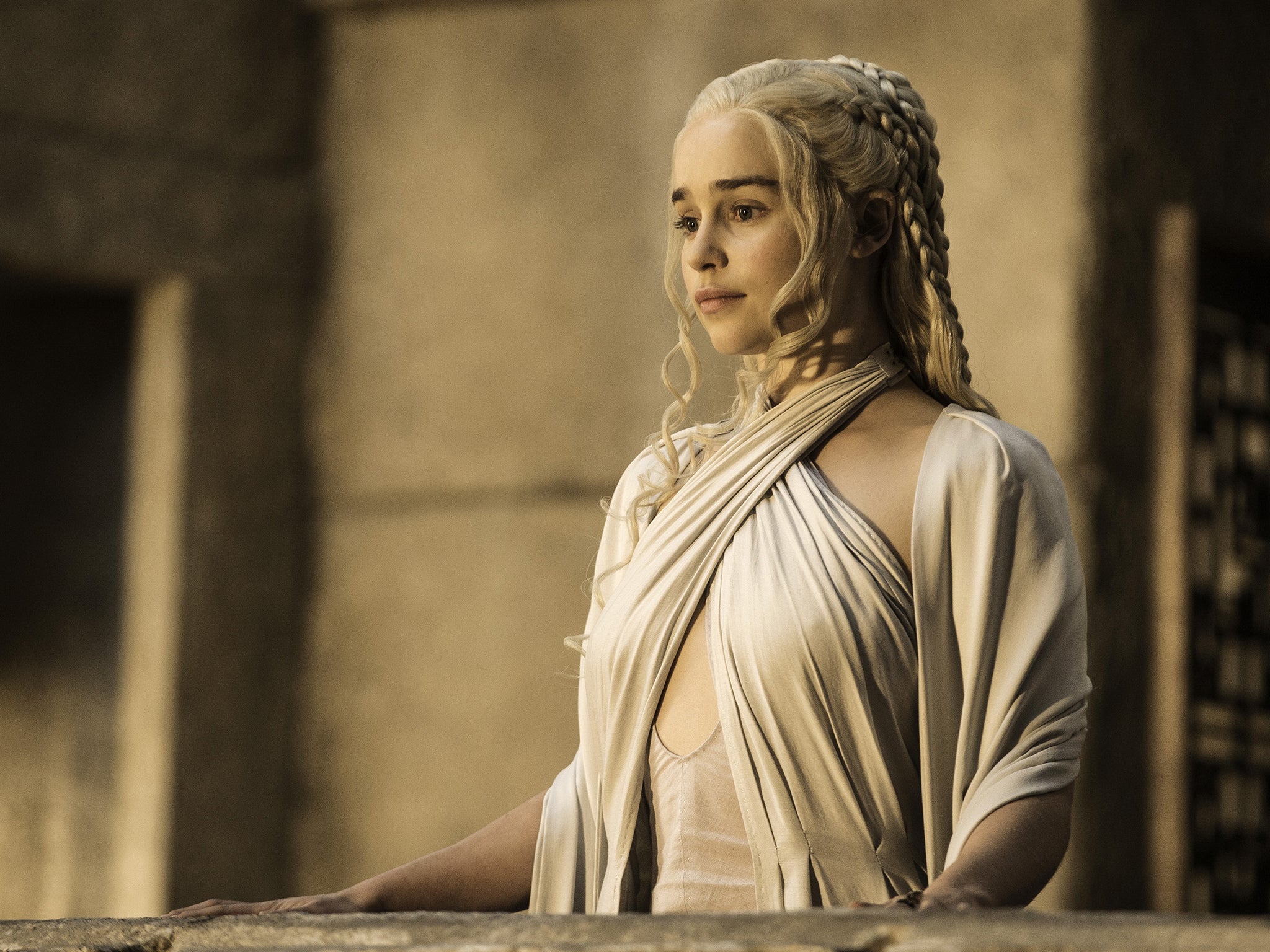Say what you want about its final season – Game of Thrones didn't just reinvent the wheel, it broke it completely
As fans deal with the aftermath of the final ever episode, Nick Hilton explores the highs and lows of the hit HBO show


Your support helps us to tell the story
From reproductive rights to climate change to Big Tech, The Independent is on the ground when the story is developing. Whether it's investigating the financials of Elon Musk's pro-Trump PAC or producing our latest documentary, 'The A Word', which shines a light on the American women fighting for reproductive rights, we know how important it is to parse out the facts from the messaging.
At such a critical moment in US history, we need reporters on the ground. Your donation allows us to keep sending journalists to speak to both sides of the story.
The Independent is trusted by Americans across the entire political spectrum. And unlike many other quality news outlets, we choose not to lock Americans out of our reporting and analysis with paywalls. We believe quality journalism should be available to everyone, paid for by those who can afford it.
Your support makes all the difference.Somewhere, hidden away in a mansion in the arid suburbs of Santa Fe, New Mexico, George RR Martin is a very happy man. Not only has he lived to see himself go from struggling fantasy writer to a millionaire of Iron Bank proportions, he has also watched as the TV adaptation of his books, which threatened to cannibalise his creative property, has been savaged, at its conclusion, by fans and critics alike. Now he can return his attention to the forthcoming penultimate instalment of A Song of Ice and Fire, confident in the assumption that it will have a more satisfactory finale.
We might all be in agreement that the petition to remake the final season of Game of Thrones with "competent writers" is a staggeringly childish response by overindulged obsessives, but the fact remains that 2019’s sextet of episodes have proved an underwhelming slog. From the season’s first scenes, which returned the viewer to Westeros in unexpectedly timid fashion, to the long-awaited Battle of Winterfell, which took the show to new levels of, very literal, darkness, the final season never quite found its stride. And now it’s over, with a two-pronged insult to fans: that their favourite, Daenerys, was the show’s eventual villain, and that their least favourite, Bran, was its ultimate hero.
It is an aphorism in politics that all careers necessarily end in failure, and the same is true of long-running TV shows. Sometimes the end is a mercy when the show has been dipping in quality (Friends, MASH), sometimes it offers a way out for a show that has become unresolvable (Lost, Prison Break), and sometimes it is the end of a dramatic arc so meticulous and beautiful that a goodbye will never quite do it justice (The Sopranos, Breaking Bad). In the end, Thrones had a touch of each: declining returns after season six’s divergence from the source material, enough fan theories and arcana to fill the Citadel in Oldtown, and high watermarks for emotional quality that could never be repeated. By its final episode, “The Iron Throne”, the show had sailed into a perfect storm, with feverish hype, expectation and anger scuppering it before it had even started.
Fans may have to make a concerted effort not to allow the bitter taste of this series to overwhelm their opinion of a show that has been consistently brilliant for eight years. With the series’ much-maligned (and so-called "incompetent") writers, David Benioff and DB Weiss, next turning their attention to Star Wars (if there was ever an "out of the frying pan, into the fire" in terms of passionate fanbases…), their reputations might continue to take a battering. But ultimately they should be remembered for pulling off something of a miracle with their adaptation of A Song of Ice and Fire. They might not be remembered as particularly special writers, but they deserve to be seen as great adaptors. Converting an apparently unfilmable book into a satisfying product is a rare achievement, but Game of Thrones deserves its place in the pantheon of the greats, alongside The Godfather and The Lord of the Rings.
It has, after all, been a televisual revolution. On a superficial level, it has brought big budgets and Hollywood production values to the small screen in an emphatic manner never before seen. But, in subtler ways, it has challenged many of the preconceptions about TV as a narrative-delivering medium. It has reconfigured the way an ensemble cast is built, how episodes (and entire series) are structured, how punches are pulled and delivered. It has given television a super-property to rival Star Wars, Harry Potter and all those interminable superhero movies, but it has forged that in an uncompromisingly adult and unsparing manner. There have been mistakes, ranging from small moments to entire character arcs, but it is a testament to the depth and breadth of the show that instances of ebbing quality are hardly noticeable when the series is viewed as a whole. It has been a remarkable show like no other.
Around the world, people who had no interest in fantasy, no interest in zombies or dragons or seeing eyeballs explode from skulls, have gathered for the holistic, almost religious, experience of watching Game of Thrones. Part of the challenge of considering this final season has been separating it from its whole – was “The Bells” actually a great hour of TV if you hadn’t invested yourself in the Daenerys plotline? Did “The Long Night” offer any real emotional stakes to the casual viewer? Was the key death in “The Iron Throne” delivered too quickly for emotional gravitas? – but critiquing these episodes, these moments, in isolation, is futile. Game of Thrones has a monolithic presence now, like it or not, and the question should not be whether it had a good ending, but whether it was a good show.
The first draft of history will be coloured by its fizzling finale, but the answer is a resounding yes. Television has undoubtedly been changed by Thrones. At its best, Game of Thrones was nuanced in a way that a blockbuster had never been: intimate yet expansive. The ease and finesse with which it struck the balance between world and character building was something that will be studied in years to come by screenwriters hoping to achieve even a fraction of what Benioff and Weiss managed. While lesser franchises, such as the Marvel Cinematic Universe and Star Wars, might claim petty innovations, they are merely reinventing the wheel; Game of Thrones has broken it.
A bad ending, perhaps, but a great show.
Join our commenting forum
Join thought-provoking conversations, follow other Independent readers and see their replies
Comments